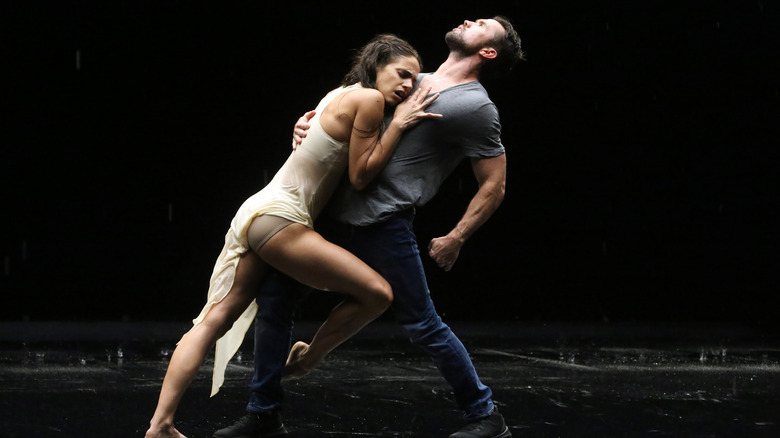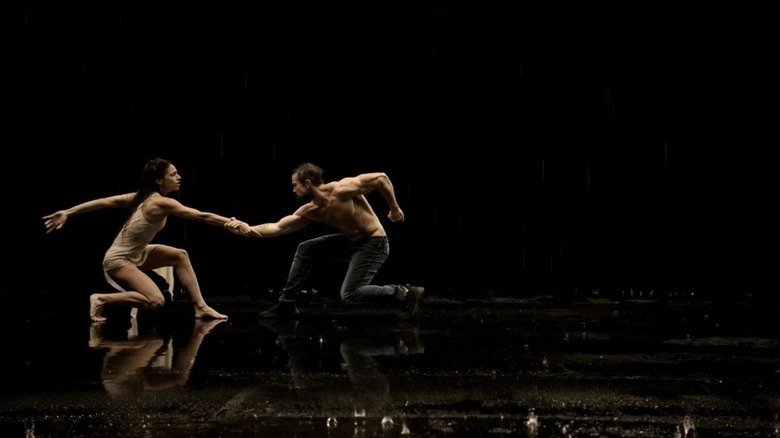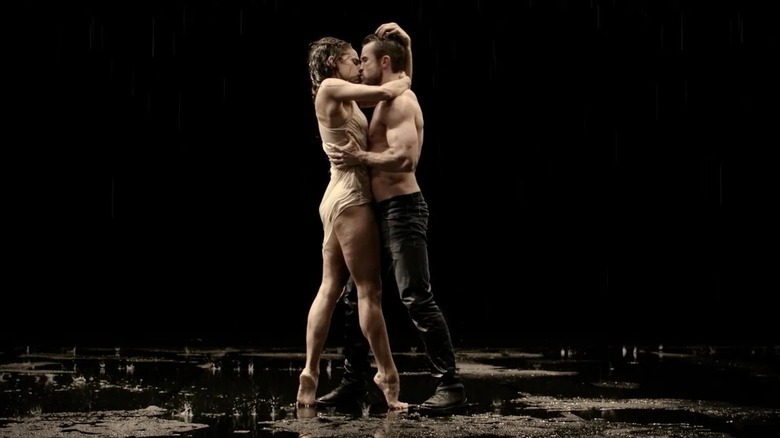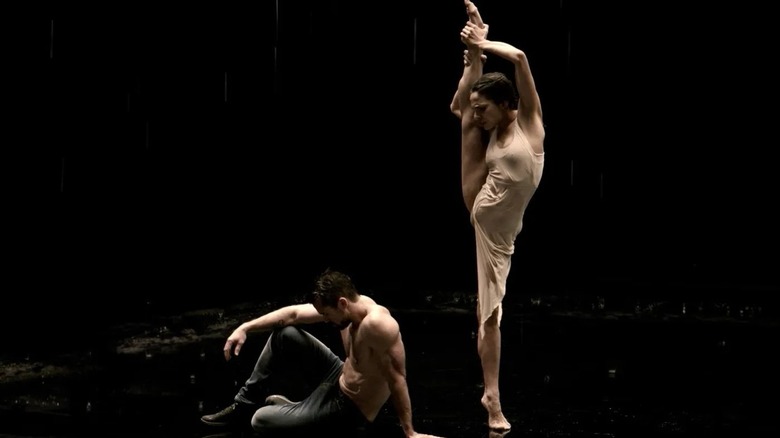Mac's Coming Out Dance Divided It's Always Sunny Fans – And That Was Always The Plan
"It's Always Sunny in Philadelphia" is an irreverent comedy full of despicable characters. So when Mac came out after years of allusions to his homosexuality, audiences weren't sure what that would mean for the beloved character. Would this mean that Mac, who was always a gun-toting Christian, would transform into a bleeding-heart liberal overnight? Or, worse, would he become a caricature of queerness and epitomize its stereotypes? Thankfully, the "Sunny" creators found a happy medium for their treatment of Mac's sexuality, which was crystallized in his elaborate dance number in "Mac Finds His Pride."
Series co-creator and star Rob McElhenney explained his character's delicate coming out to Entertainment Weekly in 2019:
"I think making sure that we are very careful to not change the fact that Mac is an abhorrent person [...] That is true inclusion, as opposed to saying he's come out and now all of a sudden he's this great guy. It doesn't work like that. True inclusion is bringing the LGBTQ down into the gutter with us."
Mac's coming out dance was even more divisive than his initial coming out because it brought out entirely new elements of the character. The series had always hinted at Mac being gay. His finally admitting it was a major moment of the show, but it wasn't necessarily new information. However, the elaborate dance number told us a lot of things about Mac's capacity for theatricality, creativity, and complex choreography.
"We got a really overwhelming emotional response from the LGBTQ community [when Mac came out]," McElhenney told Vulture in 2018. "I took it seriously and I felt it would be completely unexpected to have this much more emotionally resonant end to [season 13]. You would expect that Mac would express himself through the art of contemporary dance and it go horribly wrong, until you realize that's not the direction we're taking."
The dance was supposed to be kind of confusing
The dance was serious, making it an unprecedented tonal departure for the series. While Mac's coming out was handled in a very "Sunny" fashion (layered into a bit about an "exercise bike"), his coming out dance was not imbued with the same crassness and levity. The symbolism of the dance is purposefully obscure, and Mac's inability to communicate his tempest of emotions in words only adds to the confusion.
"There's like this storm inside of me and it's been raging my whole life," Mac waxes poetic to Frank, "and I'm down on my knees, and I'm looking for answers, and then God comes down to me and it's a very hot chick and she pulls me up and we start dancing."
This ambiguity was intended to serve as a source of humor in an otherwise dramatic scene. "We thought what would be funny about it is that it's kind of confusing," McElhenney elaborated. "We've set it up in the script that his explanation is also intensely confusing. We realized if he couldn't really verbalize what it is that's happening to him, it doesn't matter because he's just hoping for someone — whether it's God, his mom, or his dad, or his surrogate father Frank — to say that it's all right to feel what I feel and be who I am."
Even though the confused symbolism is funny, this scene still taps the emotional depths of a character who has never dwelled on the apparent tragedy of his life.
"[McElhenney's] goal was to figure out how to make people laugh and cry and really be touched," choreographer Alison Faulk added. "You've always seen Mac brush off his father's lack of interest in him and this is the first time you really saw that land with any kind of emotional impact."
The series creators want to destroy your idea of what Sunny is
The tonal departure of Mac's coming out dance was just too much for some fans to decipher. The dance completely divided fans — I know some people who stopped watching "Sunny" altogether because of it — but, much like Frank, I get it.
The piece received both "negative and positive" commentary from "Sunny" fans, but McElhenney wasn't looking to please everyone with the elaborate routine. Instead, he was aiming to polarize, as the show so often does. He spoke about the dance's reception with Entertainment Weekly:
"It's great to surprise people and have them not have any idea what we're doing and why we're doing it. I have people saying, 'Oh my God, I love this, it's one of the best things you've ever done,' and then I have other people saying, 'You've destroyed my show, you've ruined it.' And I'm like, 'Great!' That's exactly what we should be doing on the show, is we should be destroying somebody's idea of what 'Sunny' is on a regular basis."
He recognizes that the number was very out of step with the rest of the show, but that's why he loves it. However, he also understands that such a diversion from form will always frustrate certain die-hard fans.
"A lot of people didn't like it," he continued. "Because a lot of people felt like it didn't fit into the lexicon of what the show is. And I can't say that they're wrong, but the difference is that I get to dictate what the lexicon is and they don't, and that's a part of the experience."
Sunny wouldn't be the same if it painted by the numbers every week
"Mac Finds His Pride" is far from the first time that "Sunny" has broken its formula. Some of these big swings have resulted in the most popular episodes of the series, like "A Very Sunny Christmas" which, much like the season 13 finale, deals with very heavy truths about the gang's parental relationships and ends on a touching moment, with a flashback to Mac and Charlie as children throwing rocks at trains together. Other times, their reception is more split. Regardless of how the fans feel about it, the series creators love to switch things up.
"Every year is exactly the same in terms of the approach," McElhenney elaborated, "which is to try and do things that would be 'stereotypical' episodes of 'Sunny,' very 'Sunny'-esque episodes with a similar structure, and then we try to mix up a few."
McElhenney has also noticed that these stand-out episodes always get a lot of attention, but it isn't necessarily always positive attention. Not only is that polarizing nature "part of the experience" of the show, but this variety is also what gives the series such longevity.
"I truly and firmly believe that if we were just giving something by the numbers week to week, that ultimately we wouldn't be going into season 14," the showrunner added. "It would just get tired. If they hate an episode every once and a while, that's fine as long as they keep coming back to see what they might love or hate the following week."
At 16 seasons and counting, "Sunny" is the longest-running live-action sitcom in television history, and that's no accident. The very reason why people are so alienated by the series is the very reason it has stayed on air so long — it never fails to push the envelope.



